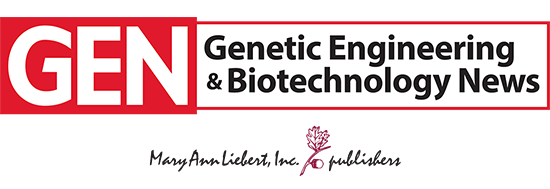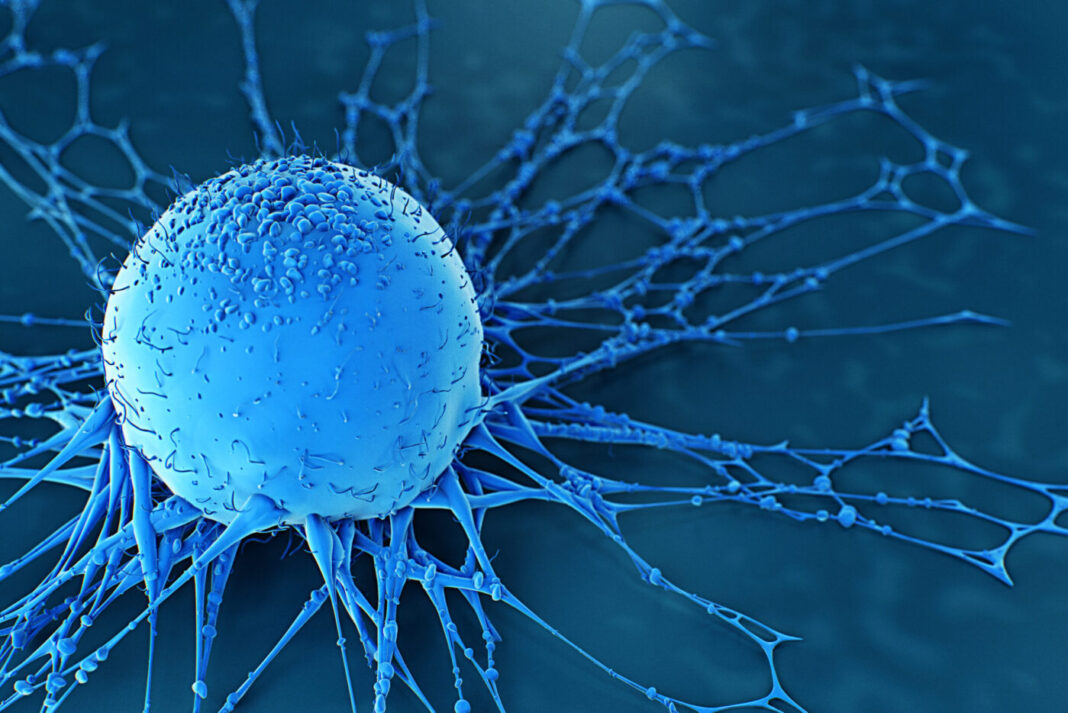
When it launched in 2015, Bolt Biotherapeutics (BOLT) took a name intended to suggest dramatic effectiveness for its cancer treatments. But this past week, the name reflected convulsions ranging from clinical, as in shelving its lead candidate and pivoting its pipeline; to commercial, as in halving its workforce and upending its top management.
The developments jolted investors enough to send Bolt shares nosediving 37% Wednesday, from $1.32 to 83 cents—a new 52-week low for the stock, surpassing the 84 cents achieved on December 1, 2023. At deadline, five analysts downgraded their firms’ ratings of Bolt shares, while two slashed their 52-week price targets for the stock.
Bolt has halted development of trastuzumab imbotolimod (BDC-1001), after concluding in a strategic review that the program would not meet its pre-defined success criteria—namely an overall response rate (ORR) efficacy threshold of at least 30%.
Trastuzumab imbotolimod came close to that with a 29% ORR, according to data from a Phase I trial (NCT04278144) presented last October at the European Society for Medical Oncology (ESMO) Congress, held in Madrid. That ORR consisted of one complete response to treatment with trastuzumab imbotolimod, plus three partial responses at the recommended Phase II dose. In its Phase II trial (NCT05954143), Bolt has disclosed a fixed non-weight-based 840-mg intravenous (IV) loading dose, followed by a 420-mg IV maintenance dose every three weeks.
As a Boltbody™ Immune-Stimulating Antibody Conjugate (ISAC), trastuzumab imbotolimod had been designed to be delivered systemically but act locally in the tumor microenvironment by triggering a localized anti-tumor immune cascade.
Trastuzumab imbotolimod had been evaluated in a pair of trials. In a Phase I/II study (NCT04278144), the drug was given to patients both as monotherapy and in combination with Bristol-Myers Squibb’s cancer immunotherapy blockbuster drug Opdivo® (nivolumab) in HER2-positive solid tumors plus breast, colorectal, endometrial, and gastroesophageal cancers. And in a Phase II trial, (NCT05954143), trastuzumab imbotolimod was studied with and without Roche’s Perjeta® (pertuzumab) in metastatic as well as HER2-positive breast cancers.
Now, Bolt will refocus its pipeline on developing:
- BDC-3042, a Phase I, first-in-class Dectin-2 agonist antibody agonist antibody designed to repolarize tumor-associated macrophages (TAMs) to attack tumor cells, and
- BDC- 4182, a newly-disclosed next-generation Boltbody™ ISAC candidate , designed to target the clinically validated cancer antigen Claudin 18.2.
“Significant” value
“We believe focusing on these programs will deliver significant value to shareholders,” Bolt’ new CEO Willie Quinn said in a statement. “We believe that BDC-3042, a first-in-class agonist antibody that reawakens myeloid cells to attack tumor cells, has broad potential across many tumor types. We’ve seen encouraging safety to date in our Phase 1 dose escalation study of BDC-3042 and are excited about the very strong preclinical data for BDC-4182.”
Bolt has also shrunk its workforce by eliminating half its workforce—approximately 50 people—and, according to its Form 10-Q for the first quarter, agreeing to incur between approximately $3 million to $4 million in related pre-tax charges, primarily consisting of severance payments, employee benefits, and related costs.
But the savings, Bolt added without quantifying, will extend the company’s cash runway from late 2025 into the second half of 2026, long enough to fund the completion of the BDC-3042 Phase I trial as well as gathering of clinical data for BDC-4182. Bolt finished Q1 with a cash balance of $112.8 million, down from $128.6 million at the end of $2023.
The company also overhauled its executive suite, sweeping away into advisory roles both CEO Randall Schatzman, PhD, and chief medical officer Edith Perez, MD. Quinn was promoted from chief financial officer to CEO, succeeding Schwartzman, while four senior executives have also been promoted:
- Michael Alonso, PhD, scientific co-founder of the company, from vice president of immunology & pharmacology to senior vice president, research.
- Dawn Colburn, PharmD, from vice president to senior vice president of clinical development, where she will oversee all clinical activities.
- Sarah Nemec, from vice president of finance to principal accounting officer.
- Grant Yonehiro, from chief business Officer to chief operating officer.
Based in Redwood City, CA, Bolt was founded in 2015 by Edgar G. Engleman, MD, to commercialize his research in cancer immunotherapeutics and myeloid biology. Engleman is a professor of pathology and medicine at Stanford University School of Medicine, where he oversees the Stanford Blood Center and his own immunology research group, and also serves as co-director of the Immunology and Immunotherapy Program of the Stanford Cancer Institute.
“Costly design tradeoff”
“The discontinuation of BDC-1001 and Bolt’s first-gen ISAC platform boils down to one costly design tradeoff—exceptional safety at the expense of competitive efficacy,” Daina M. Graybosch, PhD, senior managing director, immuno-oncology and a senior research analyst with Leerink Partners, wrote Wednesday in a research note.
Graybosch cited Bolt’s original focus on achieving exceptional safety in its design of trastuzumab imbotolimod by using a TLR7/8 agonist payload that offered milder potency, as well as a non-cleavable linker that restricted the payload’s immune activating mechanism to instances of higher HER2 expression-regulated antibody-dependent cellular phagocytosis (ADCP), with subsequent release of the lysosomal payload within tumor-adjacent myeloid cells.
That favorable safety profile, Graybosch explained, differentiated BDC-1001 from first-generation ISACs, whose clinical effectiveness was hindered by toxicity from excessive systemic immune activation from off-tumor payload release.
“However, these design principles ultimately sacrificed potency of TLR7/8 agonism and the capacity to effectively target tumors with lower HER2 expression,” Graybosch observed. “This tradeoff was especially damning for [trastuzumab imbotolimod] given the extraordinarily competitive landscape for HER2-targeted therapies, especially leading antibody-drug conjugates (ADCs) that have delivered compelling clinical benefit pan-tumor and at low HER2 expression.”
BDC-4182 addresses the issue of potency by introducing a stronger TLR7/8 agonist, as well as improved phagocytosis, and optimized conjugation chemistry, Michael N. Alonso, PhD, Bolt’s Senior Vice President, Research, told analysts Tuesday on the company’s quarterly earnings call. Those enhancements will collectively lead to increased antitumor activity, Bolt reasons, especially in tumors with reduced antigen density.
Four other analysts joined Graybosch in downgrading Bolt shares:
- Soumit Roy, PhD (Jones Trading)—from “Buy” to “Hold.”
- Michael Schmidt, PhD (Guggenheim Securities)—from “Buy” to “Neutral.”
- Edward White (H.C. Wainwright & Co.)—from “Buy” to “Neutral.”
- Stephen Willey (Stifel)—from “Buy” to “Hold.”
Schmidt cited among reasons for Guggenheim’s downgrade the departure of Schatzman and Perez, as well as what it contended was a lack of clarity on the prospects of BDC-3042 and BDC-4182, according to SeekingAlpha.
Willey and Graybosch also chopped their firms’ price target on Bolt stock. Willey shredded Stifel’s price target 75%, from $6 to $1.50, while Graybosch slashed Leerink’s price target by two-thirds, from $3 to $1.
Leaders & laggards
- AC Immune (ACIU) shares rocketed 55% over two days, from $2.31 to $3.30 on Monday and $3.58 on Tuesday, after the company announced an up-to-$2.2 billion exclusive agreement granting Takeda Pharmaceuticals (4502.JP) worldwide option and license rights to AC Immune’s active immunotherapies targeting toxic forms of amyloid beta (Abeta), including ACI-24.060 for the treatment of Alzheimer’s disease. Takeda agreed to pay $100 million upfront to AC Immune, which will be eligible to receive an option exercise fee and additional potential development, commercial. and sales-based milestones of up to approximately $2.1 billion. Upon commercialization, AC Immune will be entitled to receive tiered double-digit royalties on worldwide net sales. Takeda shares on the Tokyo Stock Exchange slid 1% Monday, from ¥4,129 ($26.58) to ¥4,102 ($26.41), then climbed 2.5% to ¥4,205 ($27.07) on Tuesday.
- Inotiv (NOTV) shares plummeted 49% from $4.17 to $2.12 on Tuesday after the contract research organization reported a 7% year-over-year decline in revenue for the six months ending March 31, to $254.536 million from $274.217 million, and a 21.5% drop in revenue for the quarter ended March 31, to $119.035 million from $151.463 million in Q1 2023. President and CEO Robert Leasure Jr. blamed weak demand for non-human primate (NHP)-related products and services, and a decrease in early-stage discovery work and orders. Inotiv cited the impact of declining NHP revenue in withdrawing its earlier guidance to investors, which called for fiscal 2024 revenues ranging from $580 million to $590 million, and adjusted earnings before interest, taxes, depreciation, and amortization (EBITDA) ranging from $75 million to $80 million.


